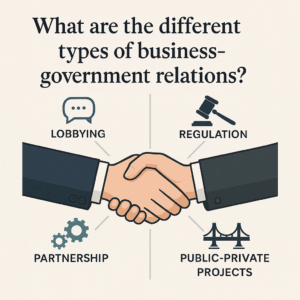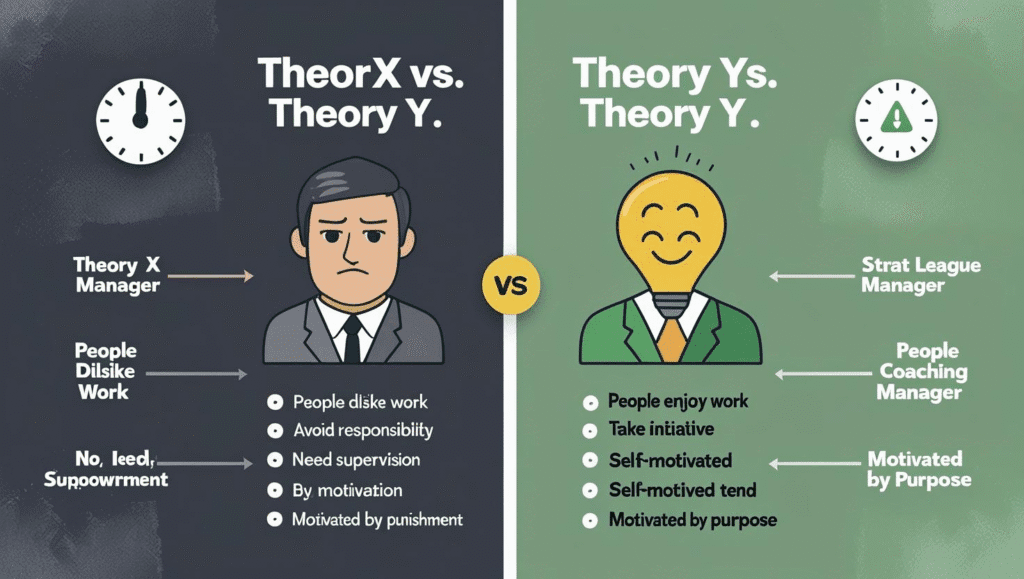Understanding Business-Government Relations: A 2025 Guide for Bangladesh
As of July 2025, the dynamic between business and government remains the single most critical factor shaping Bangladesh’s economic trajectory. This relationship is not a monolithic entity but a complex spectrum of interactions, ranging from close collaboration to open conflict. For any business leader, policymaker, or citizen in Dhaka, understanding these different types of relations is essential to navigating the nation’s path to continued growth and prosperity.
The Spectrum of Engagement
Business-government relations can be viewed on a spectrum. At one end lies a purely adversarial relationship, characterized by mistrust and conflict. At the other end lies a cooperative relationship, where both parties work together towards common goals. Most real-world interactions fall somewhere in between, often manifesting in the following key models.
Adversarial Relationship
Definition: A relationship built on suspicion and conflict, where the government’s primary role is seen as policing business, and business views government as a barrier to profit.
Characteristics: Heavy regulation, frequent litigation, public criticism, and minimal dialogue or cooperation.
Example in Bangladesh: Public interest litigation filed by environmental groups against factories for polluting rivers, leading to court-mandated shutdowns by government agencies like the Department of Environment. The relationship is driven by enforcement and penalties, not collaboration.
Cooperative Relationship
Definition: A close, collaborative partnership where business and government work together to set and achieve national economic goals. This is often called “corporatism.”
Characteristics: Formal joint committees, shared policy development, and a key role for major industry associations.
Example in Bangladesh: The Bangladesh Garment Manufacturers and Exporters Association (BGMEA) working closely with the Ministry of Commerce and the Ministry of Labour to negotiate international trade deals, set workplace safety standards post-Rana Plaza, and discuss minimum wage structures.
Public-Private Partnership (PPP)
Definition: A formal, long-term contract between a private entity and a government agency to finance, build, and operate a public asset or service.
Characteristics: Shared risk and investment, specific project focus, and leveraging private sector efficiency for public good.
Example in Bangladesh: The development of the Dhaka Elevated Expressway or various Special Economic Zones (SEZs) under the PPP Authority of Bangladesh, where private firms construct and operate infrastructure in return for a share of the revenue over a concession period.
State-Owned Enterprise (SOE)
Definition: A model where the government is the primary owner and operator of the business entity.
Characteristics: Government sets strategy and pricing, often in sectors deemed too critical to be left to the private market alone (e.g., energy, utilities, national transport).
Example in Bangladesh: State-owned commercial banks like Sonali Bank and Janata Bank, the national airline Biman Bangladesh Airlines, or entities within the power sector like the Bangladesh Power Development Board (BPDB).
Cronyism (Negative Outcome)
Definition: A pathological distortion of the cooperative model, where private interests of business elites and government officials align at the expense of the public good and fair competition.
Characteristics: Non-transparent deals, preferential treatment, corruption, and regulations designed to favor connected insiders.
Example in Bangladesh: Allegations of politically connected individuals or companies receiving large bank loans without proper collateral, which are later defaulted on, or being awarded public contracts without a competitive and transparent bidding process.
Conclusion: The Quest for a Balanced Relationship
There is no single “correct” model for business-government relations. For a nation like Bangladesh in 2025, the key to sustainable and equitable growth lies in finding a dynamic balance. This means fostering private sector innovation through cooperative partnerships and clear investment policies from bodies like the Bangladesh Investment Development Authority (BIDA), while simultaneously ensuring fair competition and protecting public interest through transparent regulation and a strong rule of law. The goal is a relationship that is collaborative but not collusive, and regulated but not restrictive.
Frequently Asked Questions
The Bangladesh Investment Development Authority (BIDA) acts as a primary facilitator in the business-government relationship. Its role is to create a more cooperative and less adversarial environment by simplifying regulations, offering one-stop services for investors, and actively promoting Bangladesh as an attractive investment destination. It is a formal government institution designed to strengthen the cooperative and PPP models.
Not necessarily. In its ideal form, lobbying is an important part of the democratic process. It allows various sectors of the economy to provide expert information and voice their concerns to policymakers, which can lead to better, more informed legislation. However, it becomes problematic and veers towards cronyism when it involves undue influence, lacks transparency, or results in policies that benefit a small special interest group at the expense of the wider public.


